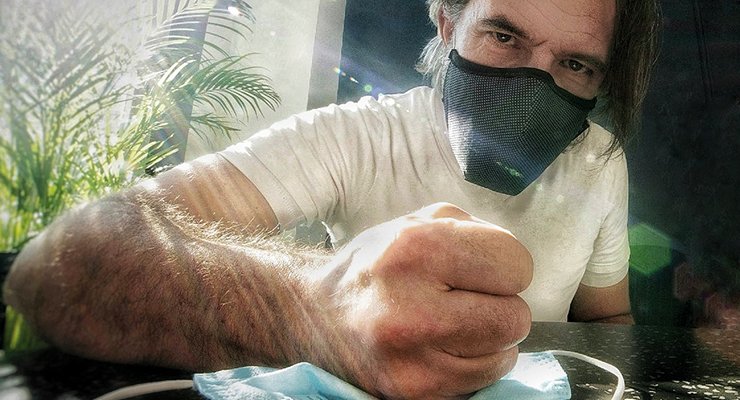etrëma : a zero waste surgical faced-mask made in Canada

For a long time, the notion of sustainable development and recycling had no valid place in the medical field, but this is no longer the case. After the recycling of water used for dialysis, now we have washable masks for use in hospitals!
It has been part of our daily life for two years now. It follows us everywhere, as soon as we leave our homes, to the point where we hardly notice it. And yet, the surgical facemask, so commonplace, is also a disaster for the environment. “About 50,000 are thrown away every second in the world and degrade, spreading their synthetic fibres in the environment,” says Antoine Palangié.
For this 1997 UTC graduate, majoring in Process Engineering (with the elective specialty Quality Safety Environment), who has always been interested in sustainable development, the use of these disposable masks, whether in medical environments or by the general public, is no longer conceivable today. “With the reduction of greenhouse gases, the problem of disposable masks in the health sector has been raised for several years, and it has become even more glaring with the pandemic.
The problem is that the alternative to such polluting masks is not without its faults: “We have seen a profusion of washable fabric face-masks come onto the market. The problem is that they don’t filter fine particles, which are the most dangerous, they wear out quickly when washed, they don’t breathe well enough and therefore don’t protect the wearer very well,” Antoine concedes.
But where some people give up, others choose to roll up their sleeves. This is the case of Michelle Secours, head of the textile company Frëtt Solutions in Canada. Called upon by the Government in March 2020 to urgently produce reusable masks, she called on Antoine to be the project’s scientific director. Enthused by the prospect of making a real difference, he began looking for suppliers to test all possible fabrics.
While their first choices were natural fibres, such as cotton or hemp (the subject of Antoine’s PhD thesis), the initial results showed that these did not have sufficient properties to make surgical masks or FFPs. But the team is not giving up. “We have come up with a polypropylene suit, designed to protect the very fine fibres from wear and tear during washing. This prevents them from being released into the environment or inhaled by the mask wearer, two major issues for the durability of the filter and against microplastic pollution. Our products are also zero waste, because the fabric scraps and used masks are recovered and recycled, for example into plastic accessories for better comfort when worn for a long time,” explains Antoine.
The etrëma masks can be washed at least 100 times without losing their effectiveness. “We have calculated that using one of our masks saves a minimum of 200 disposable masks, or more than one to five kilograms of plastic depending on the type!”
After having their face-masks certified according to several standards, Antoine and Michelle are in the process of registering a patent for their filtering media, which could then be used under licence by other manufacturers, in exchange for guarantees of good environmental, social and economic practices. “Blue masks” may soon be a thing of the past in the street… but also in hospitals !




